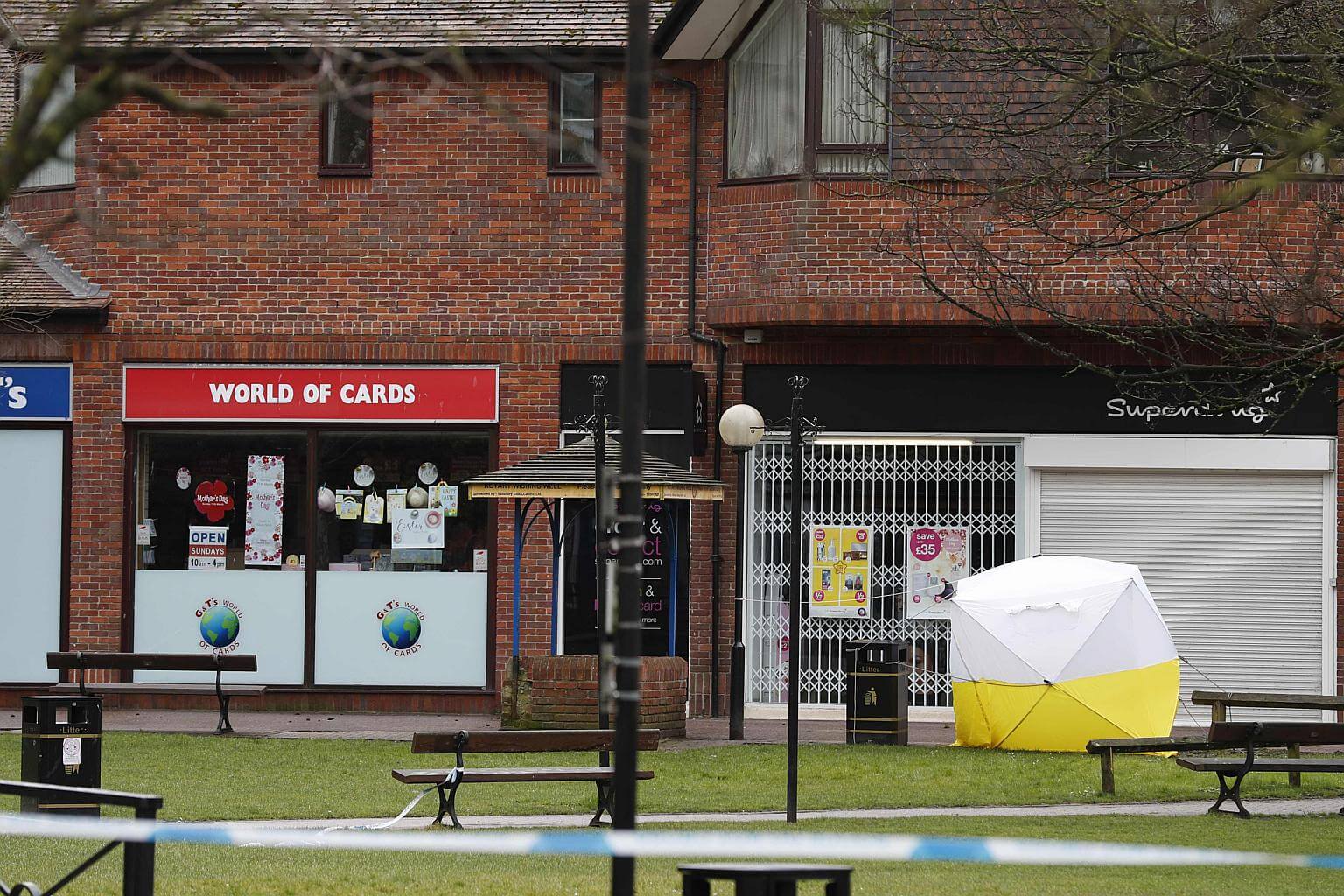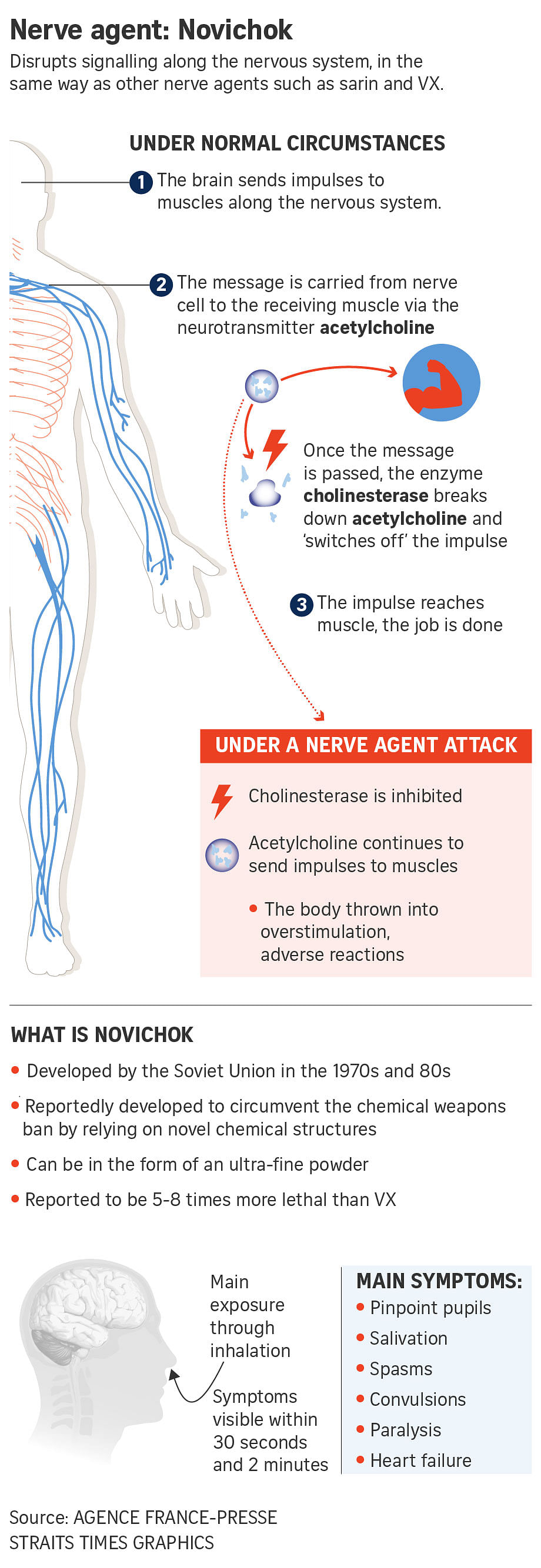Ex-Russian spy possibly poisoned with Novichok: Some facts about the nerve agent
Sign up now: Get ST's newsletters delivered to your inbox

The bench, where a man and woman were found poisoned by a nerve agent, covered in a protective tent in The Maltings shopping centre in Salibury, England, on March 9, 2018.
PHOTO: AFP
Follow topic:
AMSTERDAM (REUTERS) - British Prime Minister Theresa May said on Monday (March 12) it was "highly likely" that Moscow was responsible for the poisoning in the English city of Salisbury of a Russian former double agent with Novichok, one of the deadliest chemical weapons ever developed.
Here is a brief overview of Novichok:
1. First developed in 1970s and 1980s
First developed in the former Soviet Union in the 1970s and 1980s, Novichok, or "newcomer", is a series of highly toxic nerve agents with a slightly different chemical composition than the more commonly known VX and sarin poison gases.
2. 5 to 10 times more lethal
Novichok agents are believed to be five to 10 times more lethal, although there are no known previous uses.
Vil Mirzayanov, a chemist who worked on the Novichok programme and now lives in the United States, was quoted as saying that the nerve agent's effects were "brutal".
"These people are gone - the man and his daughter. Even if they survive they will not recover," he was quoted as saying.
Moscow is not believed to have ever declared Novichok or its ingredients to the Hague-based Organisation for the Prohibition of Chemical Weapons (OPCW), which oversees a treaty banning their use.
3. Made with agrochemicals
Novichok, the fourth generation of poison gas, was made with agrochemicals so that offensive weapons production could more readily be hidden within a legitimate commercial industry, according to US chemical weapons expert Amy Smithson.

4. Part of USSR's secret weapons programme
Publications about development and testing of Novichok in the 1990s led to US suspicions that the then USSR had a secret weapons programme and did not declare all it had in its stockpile when it joined the OPCW.
Russia, along with the United States, once ran one of the largest chemical weapons programmes in the world. It completed the destruction of a stockpile declared to the OPCW last year.
The United States is in the final stages of destroying its own stockpile.
5. Russia once possessed tonnes of Novichok
Russia was once believed to possess thousands of tonnes of weaponised Novichok varieties and their precursors, according to a 2014 report by the US-based Nuclear Threat Initiative, a non-partisan group working to reduce the threat of weapons of mass destruction.
6. Causes slowing of heart
The chemical "causes a slowing of the heart and restriction of the airways, leading to death by asphyxiation", said pharmacology expert Prof Gary Stephens at the University of Reading.
"One of the main reasons these agents are developed is because their component parts are not on the banned list."
The weaponisation of any chemical is banned under the 1997 Chemical Weapons Convention, of which Moscow is a signatory.
The Salisbury attack was to be raised in closed door sessions of the OPCW's executive council when it begins three days of meetings in The Hague on Tuesday (March 13).

